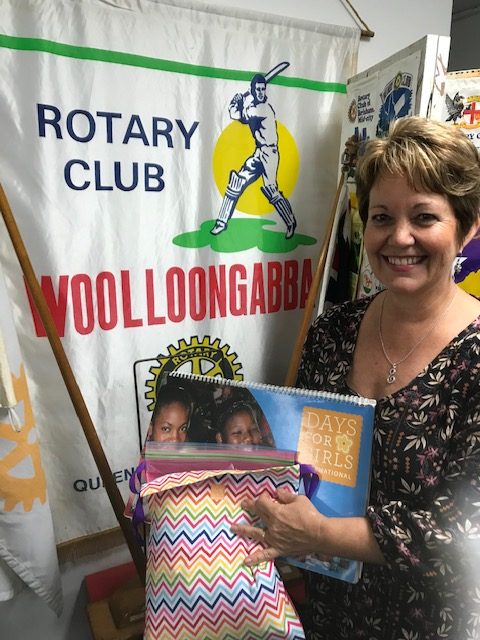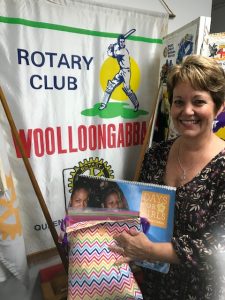We regularly try to have a guest speaker at one of our meetings each month. The speakers topics range from our local community to world affairs. On an evening late last year we invited Sharon Fagerlund from the Annerley Branch of Days for Girls to speak on femine hygiene and how there remain communities that do not deal with that subject such that the girl retains her dignity and is not prejudiced by a natural process. Sharon gave us the history of the organisation which I have shared below and thanked us for our donation through a specific fundraiser.
Days for Girls began in 2008 when Founder and CEO Celeste Mergens was working with a family foundation in the outskirts of Nairobi, Kenya where she began assisting an orphanage. In the wake of historic post-election violence, the population at the orphanage had swelled from 400 children to 1,400.
As she was getting prepared to return to Nairobi, Celeste went to bed with the devastating situation weighing heavy on her mind. In the middle of the night, she woke up with a nagging question: “What are girls doing for feminine hygiene?” Seeking an answer, she ran to the computer and sent an email to the Assistant Director of the orphanage.

He replied right away, “Nothing. They wait in their rooms.” Celeste learned that girls were sitting on cardboard for several days each month, often going without food unless someone would bring it to them. This set in motion her first intervention – disposable pads. But Celeste and her team quickly discovered a major problem – without any place to dispose of the pads, this was neither a viable nor a sustainable solution. It was time for Plan B: a washable, long-lasting pad.
Today, Days for Girls has reached more than one million women and girls in 125+ countries with DfG Kits and menstrual health education. This translates into over 115 million days of dignity, health, and opportunity!





